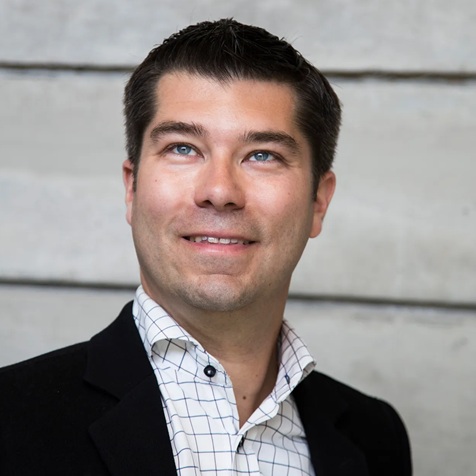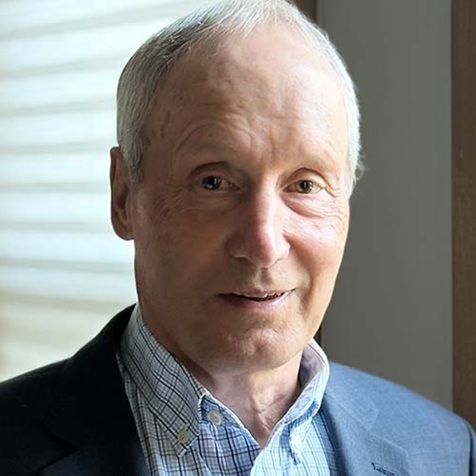When Psychology Meets Organizational Behavior: Understanding Human Dynamics in the Workplace
Scientific Conferences
Morning Event
HEC Montréal — Hélène Desmarais Building, Louis-R.-Chênevert, C.403
9:30 to 10:30
The Administrative Science Quarterly Review Process: Insights from an Associate Editor

Stéphane Côté (PhD), — Geoffrey Conway Chair in Business Ethics, Professor of Organizational Behaviour, and Director of Faculty Recruiting, University of Toronto
This activity is primarily intended for graduate students, while remaining open to the broader university community, subject to availability.
Bio
Stéphane Côté is Geoffrey Conway Chair in Business Ethics, Professor of Organizational Behaviour, and Director of Faculty Recruiting at Rotman. His research focuses on how emotional intelligence relates to well-being and performance, and how social class and inequality relate to prosocial and ethical behavior in social and organizational settings. He is an Associate Editor at Administrative Science Quarterly and a Fellow of the Association for Psychological Science, International Association of Applied Psychology, and Society for Personality and Social Psychology. He teaches courses on emotional and social intelligence in the MBA and Commerce programs.
Keynote Sessions
HEC Montréal — Hélène Desmarais Building, GardaWorld, A.463
1:00 to 5:30
Commitment at Work: Past, Present and Future

John P. Meyer (PhD), — Professor and Chair of the Graduate Program in Industrial and Organizational (I/O) Psychology, University of Western Ontario
Abstract
Dr. Meyer will provide a brief history of theory and research pertaining to organizational commitment, with emphasis on the development and evolution of the three-component model (TCM) of commitment he developed in collaboration with Dr. Natalie Allen. He will address challenges to the relevance of organizational commitment in the modern workplace and discuss how the TCM has expanded to account for other work-relevant commitments. In the process, he will discuss recent developments in research methodology and analytic techniques that allow for more nuanced understanding of the multiple forms and foci of commitment. He will conclude with discussion of the future of work and its implications for workplace commitments.
Bio
Dr. John Meyer is an internationally recognized leader in organizational psychology, organizational behavior, and management. Renowned for his ground-breaking theoretical and methodological contributions, his name has become synonymous with research on workplace commitments. His work has reshaped our understanding of commitment as a core psychological construct, and has been applied internationally in public and private sector organizations to retain top talent and create a workplace culture where personnel can thrive.
Meetings, Leadership, and More!

Steven G. Rogelberg (PhD) - Chancellor's Professor, Professor of Organizational Science, Management, and Psychology, University of North Carolina at Charlotte
Abstract
Dr. Rogelberg’s book, The Surprising Science of Meetings: How You Can Lead Your Team to Peak Performance (Oxford), was released in 2019, and has been on over 25 “best of” lists including being recognized by the Washington Post as the #1 leadership book to watch for in 2019 and Business Insider as one of the “Top 14 business books everyone will be reading in 2019.” Dr. Rogelberg’ new book (2024) Glad We Met: The Art and Science of 1:1 Meetings was named by SHRM as a top 12 workplace book, Forbes top 5 “must reads,” and Next Big Idea Club named it a “must read”. In this presentation Dr. Rogelberg will explore the empirical science of workplace meetings, shifting the conceptualization from utilitarian communication tools to critical organizational phenomena. An overview of scientific knowledge on workplace meeting will be presented. Key findings from this scientific knowledge will then be translated into actionable leadership implications. A key take home message will be that we need to move beyond merely trying to reduce meeting quantity to implement practices able to elevate the quality of time spent in meetings.
Bio
Dr. Steven G. Rogelberg holds the title of Chancellor’s Professor at UNC Charlotte for distinguished national, international, and interdisciplinary contributions. He is a Professor of Organizational Science, Management, and Psychology. He has over 200 publications, cited nearly 15000 times, addressing issues such as team effectiveness, leadership, engagement, health and employee well-being, meetings at work, and organizational research methods. Dr. Rogelberg has received over $2,500,000 of external grant funding including from the National Science Foundation. He has received multiple awards and honors, including the 2017 Humboldt Award, the inaugural Humanitarian Award from Society for Industrial and Organizational Psychology (SIOP) and the SIOP Distinguished Service Award, and has been recognized by Stanford University/Elsevier as a “World’s Top 2%" scientist for multiple years. Dr. Rogelberg is the current Co-Editor of the Journal of Business and Psychology, Past President of SIOP and past Secretary General of the Alliance for Organizational Psychology. He served SIOP in a host of additional roles including Executive Board Member, Research & Science Officer, Chair of Education & Training, and Program Chair. His research has been profiled on television (CBS This Morning, BBC world, CNN), radio (e.g., NPR, FoxNews, CBC, CBS), newspapers (e.g., Chicago Tribune, LA Times, Wall Street Journal, Washington Post, London Guardian), magazines (e.g., National Geographic, Forbes, Scientific American Mind) and major podcasts (e.g. Work Life with Adam Grant, Freakonomics). Importantly, Dr. Rogelberg was invited and testified to the US Congress (2022) on the topic of being successful and engaging others in very difficult working environments – using organizational psychology to elevate members of congress, their staffs, and the institution.
Trust and Trust Funds: How Others' Childhood and Current Social Class Context Influence Trust Behavior and Expectations

Stéphane Côté (PhD), — Geoffrey Conway Chair in Business Ethics, Professor of Organizational Behaviour, and Director of Faculty Recruiting, University of Toronto
Abstract
Trust is vital for success in all kinds of social interactions. But how do people decide whether an individual can be trusted? One factor people may consider is that individual’s social class. We hypothesize that people trust others from lower social class contexts more than others from higher class contexts; we also consider nuances between current and childhood class context and between trust as a behavior and trust as an expectation. Five preregistered studies (total N = 1,934, with three of five studies including a within-subjects component), and 12 preregistered replications summarized in the supplement, yielded two sets of findings. First, people consistently behaviorally trusted others whose childhoods were spent in low-class (compared to high-class) contexts and expected them to honor that trust. These effects were mediated by perceived morality. Second, people behaviorally trusted others currently in low-class (compared to high-class) contexts, but they did not expect these individuals to honor that trust or perceive them as moral. Instead, the effect of current class was linked to altruism. Our findings emerged in samples drawn from different populations, across varying manipulations of social class, in actual and hypothetical decisions, and with imaginary targets and real acquaintances. We consider implications for the psychology of trust and of social class.
Bio
Stéphane Côté is Geoffrey Conway Chair in Business Ethics, Professor of Organizational Behaviour, and Director of Faculty Recruiting at Rotman. His research focuses on how emotional intelligence relates to well-being and performance, and how social class and inequality relate to prosocial and ethical behavior in social and organizational settings. He is an Associate Editor at Administrative Science Quarterly and a Fellow of the Association for Psychological Science, International Association of Applied Psychology, and Society for Personality and Social Psychology. He teaches courses on emotional and social intelligence in the MBA and Commerce programs.
Organized by:
- Département de management - HEC Montréal
- Groupe de recherche sur la santé et le mieux-être au travail (G-SMAT)
